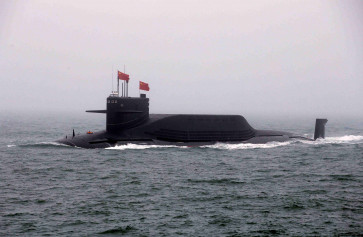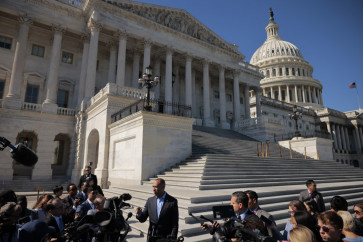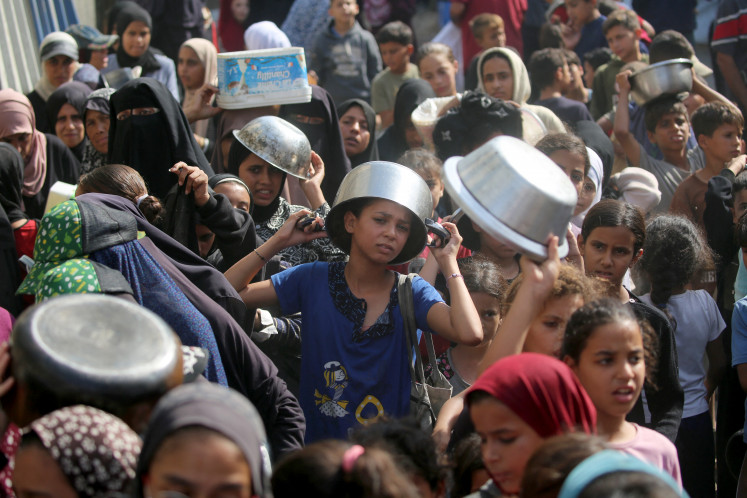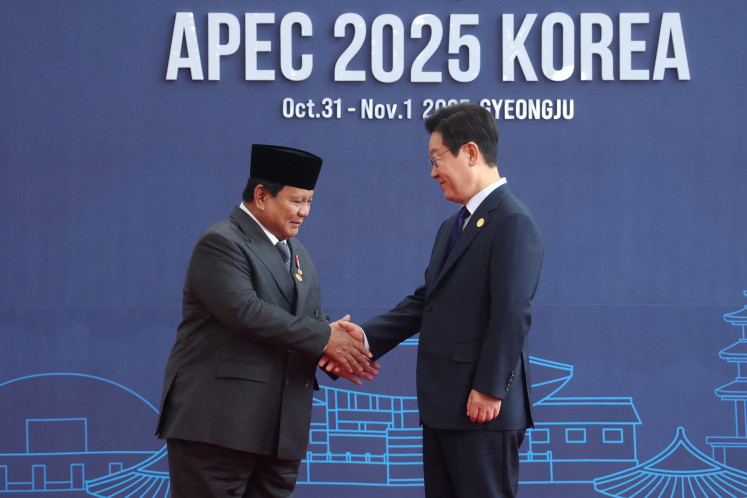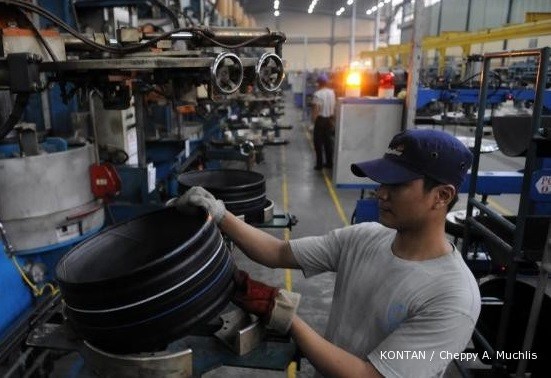Popular Reads
Top Results
Can't find what you're looking for?
View all search resultsPopular Reads
Top Results
Can't find what you're looking for?
View all search resultsAfter dark curfew mulled for teens
In a bid to curb teenage-related driving accidents, the city administration is considering imposing restrictions on children roaming the streets after dark
Change text size
Gift Premium Articles
to Anyone
I
n a bid to curb teenage-related driving accidents, the city administration is considering imposing restrictions on children roaming the streets after dark.
Governor Joko 'Jokowi' Widodo said on Thursday at City Hall that his subordinates were discussing the possibility of enforcing a curfew for teenagers.
'We are now weighing the effects of the curfew,' he said. 'We have to determine the ages and education-level of the children who will be affected by the regulation and whether it will stop them from doing positive activities such as group studies at a friend's house.'
'Parents will welcome any regulation that protects their children, but the curfew will affect the freedom of children.'
It is common to see groups of teenagers driving to shopping malls and nightclubs without adult supervision.
The 18-year-old minimum age requirement for obtaining a driver's license has not seemed to stop them, as some parents believe that the risk of getting a traffic citation or the rising number of teenager-related driving accidents are far less worrying than having their kids take public transportation.
The issue of underage driving recently came into the spotlight after a recent pile-up killed six people on the Jagorawi toll road early on Sunday morning.
Thirteen-year-old musician Ahmad Abdul Qodir Jaelani, or Dul, was behind the wheel of a car when he hit a road separator and slammed into oncoming traffic.
Instating a curfew is just the latest in the pipeline, as the Jakarta Education Agency will also circulate a letter to parents next week, asking them to not allow their underage children to drive to school. There would be no sanctions from the administration against non-abiding parents or students, but schools are allowed to set up their own rules.
One city that has implemented a curfew for children is Surabaya. The municipality administration regularly raids night entertainment hubs to prevent child trafficking. Surabaya Mayor Tri Rismaharini often leads the raids to net children.
Jokowi said children's safety was the responsibility of all people, including parents, teachers and the government.
He acknowledged that the city's public transportation was not safe and was inadequate for students.
'When we have enough buses, we can then discuss stricter regulations,' he said, adding that the city would add 3,000 minibuses and 1,000 Transjakarta buses next year.
Deputy Governor Basuki 'Ahok' Tjahaja Purnama, however, was pessimistic about the curfew, saying that it would be difficult to implement.
Ahok said it was better if communities were more aware of their children's activities. 'Neighborhood heads and residents, for example, should monitor the children in the neighborhood. We cannot rely only on the Public Order Agency [Satpol PP] to do the job.'
National Commission for Child Protection (Komnas PA) secretary-general Samsul Ridwan demanded that the government thoroughly outline all aspects of the curfew before implementing it.
'Do not let the regulation criminalize children,' he said.
Samsul said the city administration should consider street children and homeless children.
Samsul said the best way to protect children was by creating safe environments for them.
'Our law enforcers must guarantee the safety of children 24 hours a day,' he said.



